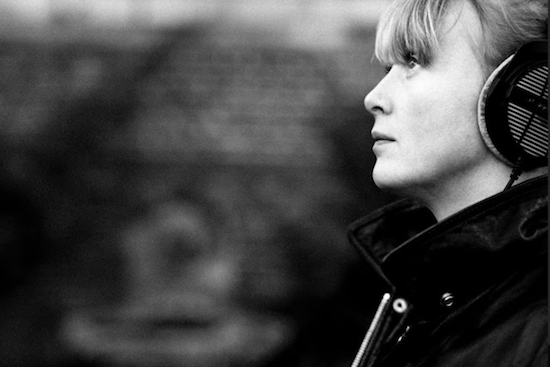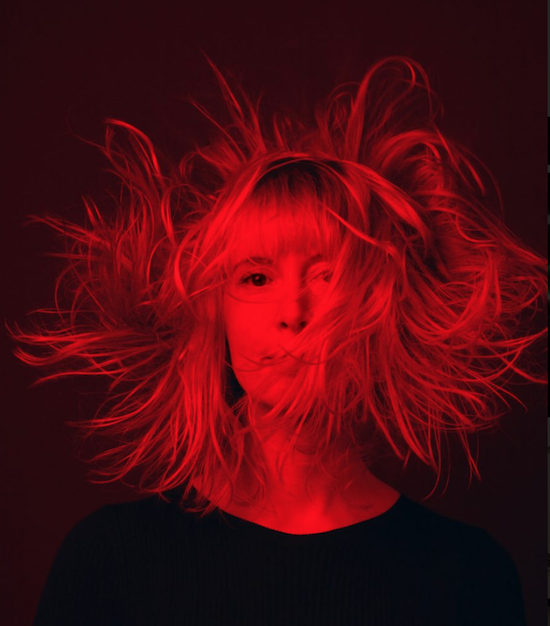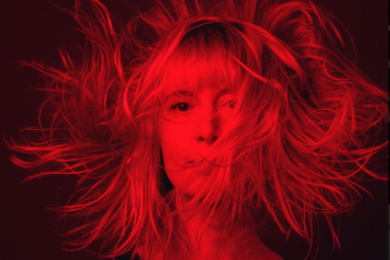Portrait by Emil Hornstrup
When Georges Bataille published Story Of The Eye, his militantly graphic quasi-Bildungsroman under the pseudonym Lord Auch in 1928, the novel was broadly labelled as pornography. Hallucinatory and exponentially lurid, the work escaped serious critical analysis for several years before Bataille’s corpus, largely following his death, began to garner scholarly attention from Roland Barthes, Foucault et al who noticed both the theoretical value and vividness of style in his output and rushed to offer competing readings. The numerous works Bataille published subsequent to the Story (along with posthumously issued material) illuminated and recast the murky philosophies of his first novel and led to its becoming understood as dealing with themes far more complex than straightforward libertinage.
Bataille was pretty young when he wrote the Story, but it contained the germs of ideas which have proved remarkably enduring. Probably the most famous are his theories, fleshed out in Eroticism (1957) and the collected writings from the years 1927-1939, Visions of Excess (1985), that the truly sacred could only be found in the most extreme of experiences. For Bataille, transcendence lay in understanding and traversing the terrible “void” at the self’s core — he gives the example of standing at the very edge of a chasmic pit, staring down, experiencing vertigo; after enough time spent peering, the fall itself is joy.
SØS Gunver Ryberg recently worked on music and sound design for a series of theatrical performances of Bataille’s Story at theatres throughout Copenhagen. After chatting for a while, it becomes easy enough to see what drew her to the project. Her vast soundscapes are at once beautiful and cataclysmic, in the way that a volcano erupting is beautiful. Her latest EP, SOFALD (“Sunfall”), would serve as a capable soundtrack for just such an extinction event. It sounds like staring into the face of an implacable hundred-foot Lovecraftian horror as it gets ready to eat you. As we talk, I get the impression that she has a faith, like Bataille, in the transformative potentials of experience in extremis. More than anything, her teeth-rattling compositions remind me of our sheer fragility — a feeling her audiences might share.
“The people that come to me have very physical reactions. Some people tell me they cry,” she says, as we discuss her live show. “Physicality has always been a very important aspect of performance for me. I really seek out those frequencies that go into your body and resonate. Anyway, this person wrote to me and told me that he had so much energy in his body — and he was not on drugs — that he had to go into the bathroom and shake for ten minutes. My music is very much about going in with the frequencies and activating these parts of people, so I know that these reactions can happen.”
Simply put, SØS Gunver Ryberg is a volume junkie. She talks about seeking a feeling of immersion, the sensation that the sound is “going into your bones.” But before getting into “noisy” music as a teenager — “bands like Suicidal Tendencies and Sepultura, bands with heaviness to them” — she grew up with jazz, classical and Brazilian music playing in her mother’s house.
“My sister married a Brazilian musician, so we had a lot of Brazilian music in our house for many years. And the jazz, it could be everything from traditional Louis Armstrong to Herbie Hancock to Miles Davis to Weather Report, which is maybe not considered jazz any more… What I remember most is the classical music and the Brazilian music. But I always have an issue with remembering stuff like this.”
Ryberg, who was born Gunver but went by Søs growing up, spent her early years in the Danish countryside and doesn’t consider her childhood to have been particularly musical. Søs, she explains, “means the sea, like an ocean, but it also means little sister, so in English it would be same as saying ‘sis’. My family always called me Søs and it’s only later in life that people started to actually call me Gunver. I felt that Søs suited me when I was younger and now Gunver is really nice because I’m much more mature, and Gunver has strength of character, while Søs is more sweet. When I had to define the ‘artist name’, it was natural for me to include my whole name. It felt very honest and personal. I believe that words have energy, and I felt there was special energy connected to my own names and that it was important to get that. I chose not to have a character or hide myself away. I felt I needed to have this honestly and not have a distance between me and the people receiving my music.”
The lone instrument in the house was an old piano, “totally out of tune.” A turning point for the young Ryberg was obtaining a tape recorder, which she immediately put to prolific use.
“I loved recording onto tape. That was so interesting because I could create stories, I could record sounds… I really wanted to have a microphone, but nobody in my family was technically interested. I never got to the point where a grown-up helped me by saying ‘Hey, maybe this could be interesting for you’. It was just my own thing. But I saved all the cassettes and I still have them. Bags of them. I wanted to go through them but, of course, it’s extremely time consuming. I think that will have to be a project for when I’m really old or something like that.”
An autodidact, Ryberg struggled with traditional music lessons. She attempted classes, but couldn’t find a teaching format that could scratch a precocious compositional itch.
“I never found a teacher who acknowledged this way of creating yourself. In music it was more about having to reproduce, and I was not very interested in that. It didn’t really interest me so deeply to just reproduce someone else’s music.”
Perhaps as a result, Ryberg didn’t pursue music seriously as an adolescent; I’m taken aback when she remarks offhand that she only started recording in 2005. Before giving music her full attention she devoted most of her time to the Danish performance art scene, appearing in experimental productions and participating in esoteric physical theatre and stunt training with a group of like-minded collaborators. It doesn’t exactly sound like Ibsen.
“It was abstract, sensory. For a bit I worked with a new circus group. The type of thing I was involved with was like installation work, on the edge between art and performance and theatre. Sometimes we’d drive audiences out to specific settings, these deserted areas, and they’d walk into the house and experience different scenes or characters in this space where they don’t know what’s really going on. There might be a story, but it’s very much about their own interpretation.”
Ryberg’s tenure as a stuntwoman has been reasonably well-documented, but I haven’t been able to find out much about how she got into the field.
“So I trained with this stuntman. He developed this whole teaching system and concept. Part of the training was stunts, but it’s also many other things as well. It’s about exploring working with your senses and exploration of energies. It’s a very holistic way of working. Sometimes it would involve meditation, and sometimes we’d go on excursions and get up at four in the morning and run for… we didn’t know how long we’d be running, but we just had to run.”
It sounds like a boot camp. What kind of energies are we talking about? Ryberg laughs nervously.
“Maybe like… werewolf energy.”
Really?
“I remember something about us being werewolves out in the forest,” she explains. “I don’t really talk much about it because when it’s taken out of context it sounds really…”
I resist the urge to smirk and reply with “cultish?” Running around the woods howling at the moon isn’t really that outlandish, I say instead, for an experimental theatre troupe. Letting go of your inhibitions and trying to inhabit a primal mindset is probably useful when it comes to embodying and understanding different types of characters, right? I know people at Goldsmiths doing stuff that’s way more questionable. But there’s more.
“Anyway, it was basically about connecting with the deep mystique of the forest and also this more dangerous energy. We’d be trying to challenge our boundaries all the time, in different ways. With the body in extreme ways but also mentally and emotionally. I remember once I had a real fight with him.”
This time I do laugh, but it’s out of surprise. A full on fight? Søs was swinging?
“Yeah. We were exploring working with contact and anger. Like how do you — that’s an energy you work with a lot when you perform and when you do stunts and all this. You really have to know yourself in these situations. I’m quite non-confrontational. At that time I was even more non-confrontational. It was not something he forced me to do — it was my own choice. I wanted to explore myself in this situation of really being pushed on my fighter energy. My fighter instinct. I really wanted to explore that, and it was a safe environment to do it. He’s of course much stronger than me so he was not hitting me, you know, as he could, but I was trying to use all of my strength. It was extremely difficult. I had to give up. I felt nauseated from exploring that side of myself.”

Portrait by Karoline Tiara Lieberkind
As a chronic angry crier, I can see where she’s coming from. The body’s refusal to cooperate in a demanding situation is uniquely frustrating, although Ryberg’s “fighter energy” would seem to have found an outlet that isn’t distressing for her. But I learn that her abrasive textures and punishing percussion aren’t so much an expression of anger as of confusion, hesitancy and existential uncertainty.
“The music is about reflecting the complexity of our existence. It’s about transformation. That’s what I try to capture in these different forms and shapes. Life is extremely complex and it can be super, super beautiful and magical and poetic, and it can be extremely fucking hardcore and ugly and full of feelings of ‘Why?’ and ‘Why are we doing this, right now, here?’ With the Story Of The Eye performances we were really deep with existentialism and all these -isms. I reflect a lot on life. I have tons of questions. And I guess that’s why it’s very important for me to express myself creatively because I’m a person who reflects a lot through emotions and feelings and not so much by being very intellectually formulated. I really work on other levels.”
At the risk of journalistic intrusion, I’d like to state outright that Ryberg seems totally articulate and lucid during our conversation. But pushing up against the limits of language is one of the marks of an artist — why make art if what you want to communicate doesn’t escape the bounds of normal speech? We can’t do everything with language that we’d like to. Some feelings need more than words. Ryberg, with her focus on the physical, agrees.
“That’s always something I’m seeking. It’s not enough for me to be something you perceive up here and understand with your mind. It has to be something that really resonates with your whole system.”
Her system-resonating crusade reached a wider audience when she performed at a Boiler Room event in Berlin curated by fellow dance music dissident Objekt. That show saw her ensconced in an enormous knitted sweater, huddled over daunting banks of machinery with two large crystals standing on a nearby monitor.
“I didn’t know what the Boiler Room was. At first I said no. In that situation I think it was important for me to have something that would make me feel connected with my core. It’s a setting that, you know, can feel quite alien. And I didn’t know how I’d react in this setting so I just needed to have some symbols that would keep me focused on my higher aim. To remember why I’m there, why I’m doing this, what it’s important for me to communicate.”
One of those live aims is to figure out new material. Ryberg creates her music by programming digital signal processors on the spot, employing loopers, hardware drum machines and numerous effects pedals. In jam band tradition she uses performance to experiment with new tracks and employs a Darwinistic approach in the selection of the sounds that make it onto full recordings.
“I get to hear it amplified on a big sound system,” she laughs. “I can connect with people on something I’m interested in in the moment, and have this experience, this reaction to the energy in the room with people. I try out the material and work with it and I can see what stays in my head, what keeps on existing, and then there’s stuff that I filter out or change. It’s very important to have the energy of the people in the room — the whole feeling of it becomes a transmission.”
Outside of releasing solo material, Ryberg works on composition for the aforementioned theatre performances as well as video games, film and collaborative albums. In 2017 she contributed to a well-received team release for Paula Temple’s Noise Manifesto label, and she worked on music and sound design for Danish developer Playdead’s 2016 game Inside. 2018 saw her composing the soundtrack for Cutterhead, a claustrophobic thriller about characters trapped in a Copenhagen metro tunnel crawlspace.
“I see [commissioned work] as just as big a part of my practice as going out touring or releasing. Because I’m so much in between all these different media I feel in some ways that the music scene is stuck on the album. How important the album is for you to actually go out and have a tour or something like that. With Inside, it’s an extremely silent game and it’s based on atmospherics. There are actually very few musical elements to it. When I recorded the synth sounds we filtered it, and one way of filtering it would be through that skull. It’s something to do with the feeling of being inside — how does sound sound? My voice sounds differently because I hear it it reflected through my skull. You have your own perception of your voice. And then when you hear it on tape, you’re really surprised, like ‘That’s my voice?’ There’s huge filtering going on in the skull. It made the synth sounds very eerie. And all the foley was processed through tape recorders, old reel-to-reel. We emphasised all the little sounds, like using a microscope. And I actually am the character. It’s my breathing.”
Before we wrap up, I want to throw a bone to anxious SØS fans and try to find out about any new releases. It turns out that the future of pitch-dark experimental techno is surprisingly bright.
“I have minimum five releases. It’s really from all kinds of different directions.”
Five new forthcoming solo works, not including collabs?
“Yeah. It’s because I’ve accumulated a lot of material — since I haven’t released very much I have this huge amount. Now it’s very important for me to transform this into releases.”
Earlier in our conversation, Ryberg speculated that her “bad memory” was a result of “living in the now.” And her present attitude to releasing music is a reflection of that, although it involves the ephemeral being frozen.
“I’m starting to see an importance in documenting these different steps. I move a lot as an artist, and I’m not really able to get stuff manifested in a more tangible or fixed form before I’m already into something else. It’s not for my own sake that I want to have a retrospective. It’s more to do with… I see a value in having these things manifested, these layers.”
There’s a knotty Danish word-concept we discussed earlier called nødvendighed. Ryberg characterised it as “‘Necessity’, but translated like that it sounds a bit flat.” My understanding of the term is likely as clumsy as it gets, but I think it, when used in artistic contexts, has something to do with the the burning need to find common ground, to explain an inner landscape, to expose the self freely and to communicate. Compulsion doesn’t seem like the right word — per Ryberg’s explanation, it seems like a basic desire to express oneself to others and absorb the expression of others in turn.
“When I perform, I really aim to reach an altered state of consciousness together with people through the music. I just have a feeling that it’s also important that I can be communicating with people outside of a concert context.”
There are few feelings better than the genuine sense that somebody understands you. A live show might provide that for a performer, but Ryberg is right to call it ephemeral. The desire to be heard, the desire to communicate, is a hunger that can never really be sated. But by diarising, leaving documents for herself and fans alike, it seems that she can get closer to a fuller understanding. We learn the most from the long conversations, after all.
SØS Gunver Ryberg appears at Semibreve festival in Braga, Portugal, October 26 – 28



